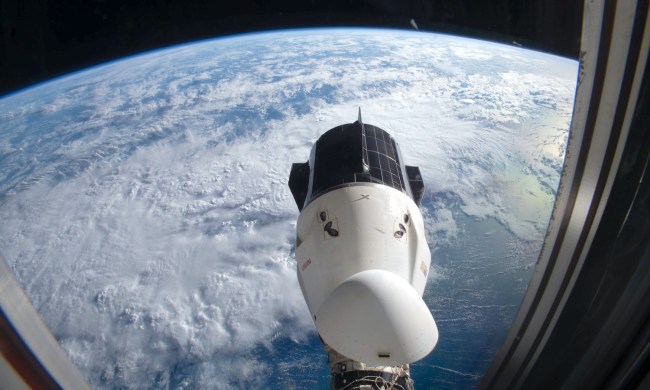
Elon Musk’s private space company was conducting tests for its next-gen Merlin booster — one that hasn’t yet flown — when the explosion occurred on Sunday, November 5. It’s now trying to work out what went wrong.
The unfortunate incident comes toward the end of what has been a great year for SpaceX. So far in 2017 it’s completed 16 launches using Merlin engines on its Falcon 9 rocket, double what it achieved last year. Its missions involve transporting supplies to the International Space Station as well as satellite launches for a range of companies around the world.
Despite the explosion, SpaceX insisted it’s committed to its current launch schedule. This includes several launches before the end of the year and a possible test launch of its new Falcon Heavy rocket, which Musk says will be “the most powerful operational rocket in the world by a factor of two.”
All of its space missions have so far been unmanned, but there are plans to begin testing crewed flights in 2018.
Ups and downs
For those that follow the ups and downs of SpaceX in its ongoing quest to build a reusable rocket system to drastically cut the cost of space travel, this most recent setback will bring to mind a similar calamity suffered by the company just over a year ago when a rocket exploded on the launchpad.
No one was killed or injured in the spectacular fireball at Cape Canaveral’s facility, but the rocket was totally destroyed, along with a $200-million Israeli satellite that was to be used by Facebook as part of its ongoing efforts to bring internet connectivity to remote parts of the world. A lengthy investigation found the explosion was caused by a failure in one of the rocket’s helium tanks.
In a 2005 interview given by Musk when SpaceX was just starting out, the billionaire entrepreneur said the company’s ambitious goals meant that “failure is an option here,” adding, “If things are not failing, you are not innovating enough.” More recently he posted a blooper video titled, “How not to land an orbital rocket booster,” showing various disastrous efforts by SpaceX on its quest to perfect its system, which is designed to land booster rockets back on Earth shortly after launch.


